ACTING must put more people of colour in creative boardrooms to stop unconscious bias, colonialism and complacency which exist in the profession.
That is the call from one of the industry’s biggest south Asian stars.
Meera Syal told the Raminklal Pioneers Project, a partnership of the Asian Media Group [the parent company of Eastern Eye], the University of Southampton, and the Indian Business Group, that she was grateful to those who have helped her.
But more must be done to create a fairer profession.
“It’s still pretty pitiful,” she said. “There are some shining exceptions, like We Are Lady Parts.
“Nida Manzoor [creator of the series] is shifting the boundaries on how south Asian women are seen.
“It just makes me sad, really, we’re in 2023, Goodness Gracious Me was the 2000s, 23 years later, what have we got?
“We really thought that was going to change things, we have more visible representation on screen for sure, that has changed, you can see it.
“But actually, casting can be cosmetic.
“It’s important because if you can see it, you can be it.
“It’s really important to switch on the television and see people like you in adverts or in the news or in a role like Bridgerton where you’d never have seen people of colour in a historical drama.
“Of course, that’s important, but when you dig deeper, when you look at the infrastructure, there are hardly any of us in those offices, making those decisions, commissioning those stories, who would understand why these stories need to be told, and that is a real problem.”
Progress
The star of hits such as Goodness Gracious Me, The Kumars at No. 42 and Mrs Sidhu Investigates agreed much had changed during her 40-year stellar career.
But despite her success, Syal still has difficulties in getting her projects commissioned.
“I’ve hardly had anything made over the last few years, and I don’t think it’s because I’m a shit writer.
“Because a lot of my stories are not the usual stories that they want to see, which is, one generation going ‘shame on us’, and the other generation, ‘I’m gonna do what I want, and I don’t care what you say.’
“It’s still going on, some version of that cliched 1975 stuff.
“We’re not in the boardrooms.
“I would love to have shorthand with the people I go and sell stories to, where I don’t have to explain everything, where they actually understand that culture moves laterally as well as forwards.
“I love the quirky stories, I love the way that the lens goes slightly off what you expect, and you just have a great story which throws some light on a completely unexpected way, where race and identity aren’t the point, it could be something completely different.”
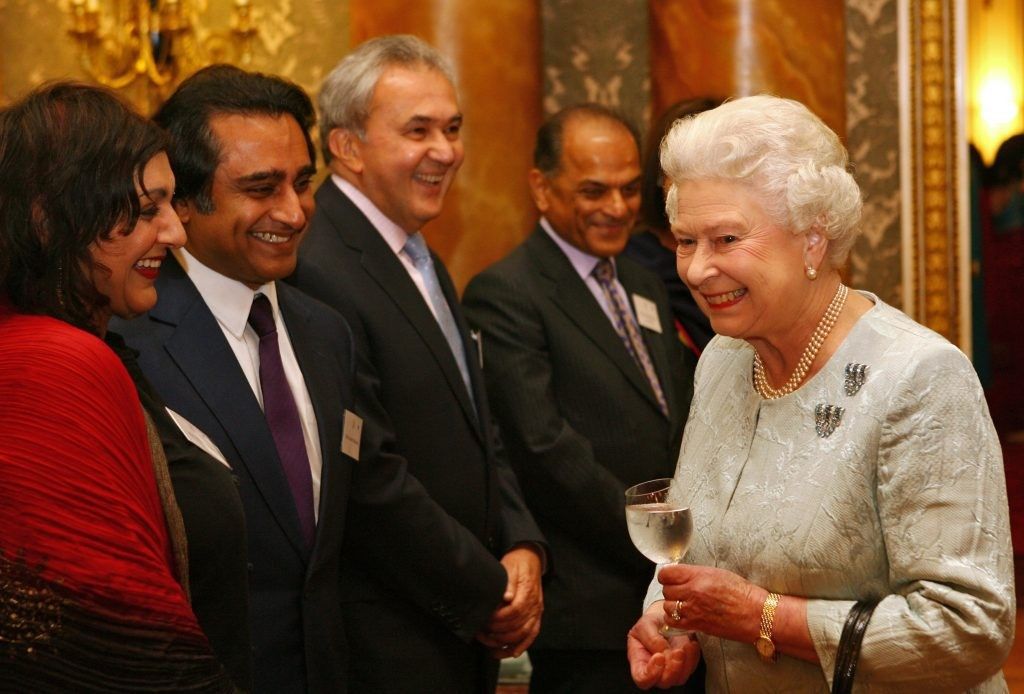
Bhaskar(second from left) ) (Photo by JOHNNY GREEN/AFP via Getty Images)
Difficult times
She revealed that she is currently working on two ideas but was concerned about the lack of cash being invested in making original dramas and screenplays.
“We’re also talking during quite a difficult to point in television and film,” Syal continued.
“It was the wild west a couple of years ago, because of the pandemic and the need for content, people were commissioning left, right and centre.
“Everybody was shooting, there wasn’t enough crew, now all of a sudden, over the past six months, everybody suddenly realised we’ve run out of money.
“Audiences are leaving, that’s why you’ve seen so many things pulled.
“I’ve been talking to a few producers that have done the rounds, because I tried to place a couple of scripts at the moment.
“I genuinely do believe them when they say ‘This is not a good time with suddenly, after the feast, there’s now a famine, we’re having to cancel things and pull back things.’
“‘For example, we can’t do any more historical projects now for at least five years because they’re the most expensive.’
“So everyone’s going through this massive restructure because everyone really did go crazy for a couple of years.
“Of course, the first casualties are going to be so called minority stories, because they’re seen as the most risky.”
American takeover
Pioneers spoke with Syal the day after she returned from Prague where she was filming the Amazon fantasy series The Wheel of Time.
The series is scheduled to return to our screens in September, where Syal plays Verin Mathwin.
According to fans Syal’s is an “extremely important character in the story overall, heavily focused on the pursuit of knowledge and gathering information”.
Syal said that America had overtaken Britain in offering high profile and successful roles to actors of colour.
“When I made my speech at BAFTA, I had to think really carefully about it.
“I didn’t want to sound ungrateful; I didn’t want to not acknowledge that things have changed.
“They have profoundly from when I started, and I want to celebrate all of that.
“But you also want to get the balance to say that we have become complacent, and I realised it when I look at what the south Asian stories are happening in America, because they were way behind us.
“When Goodness Gracious Me started, there was no concept of south Asian comedy in the States.
“We really were the first in the diaspora to light that particular touchpaper, and you would assume that after that people would go where are we going next?
“And then we watched Mindy Kaling (an award-winning American actress) and everybody else, run past us, pick up the baton and run with it, and that makes me sad.
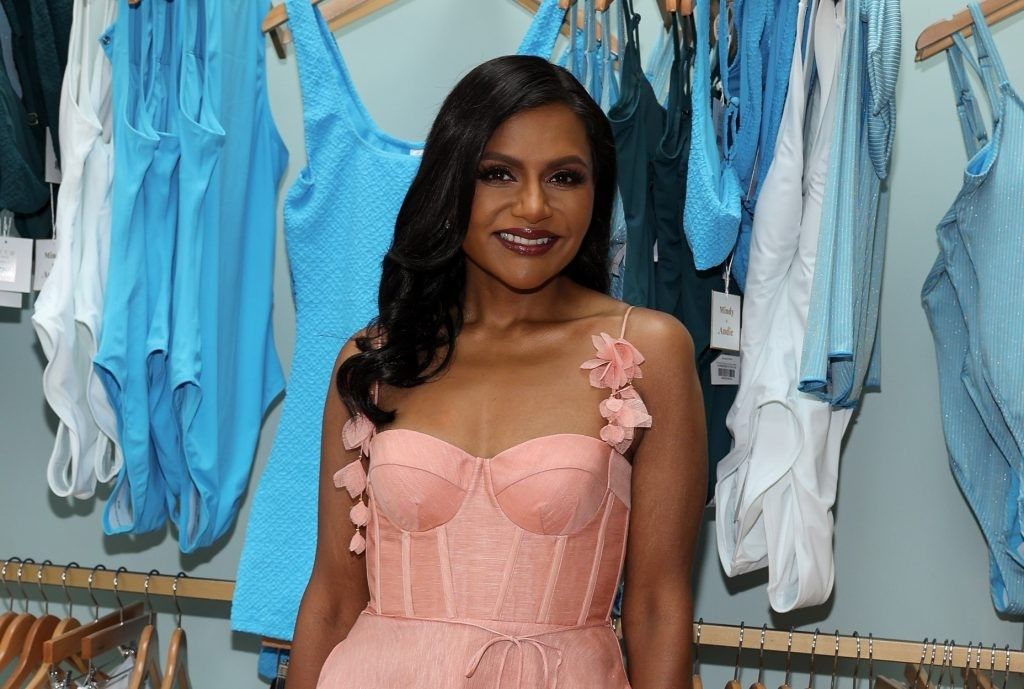
“That has a lot to do with funding and infrastructure there.
“There’s still sometimes a fear that if a piece has got 70 per cent plus south Asians in it, no one will watch it, and I think people thought that about black actors too.”
Syal also wants commissioners to realise that Britain can afford to commission more than one project where people of colour are the story.
First look deal
What Syal would like is for Britain to adopt the American model which nurtures south Asian talent in so called “first look deal”.
“Some stars have that, and it probably happens to Riz [Ahmed] now, I would imagine he’s reached that level, but they’re few and far between.”
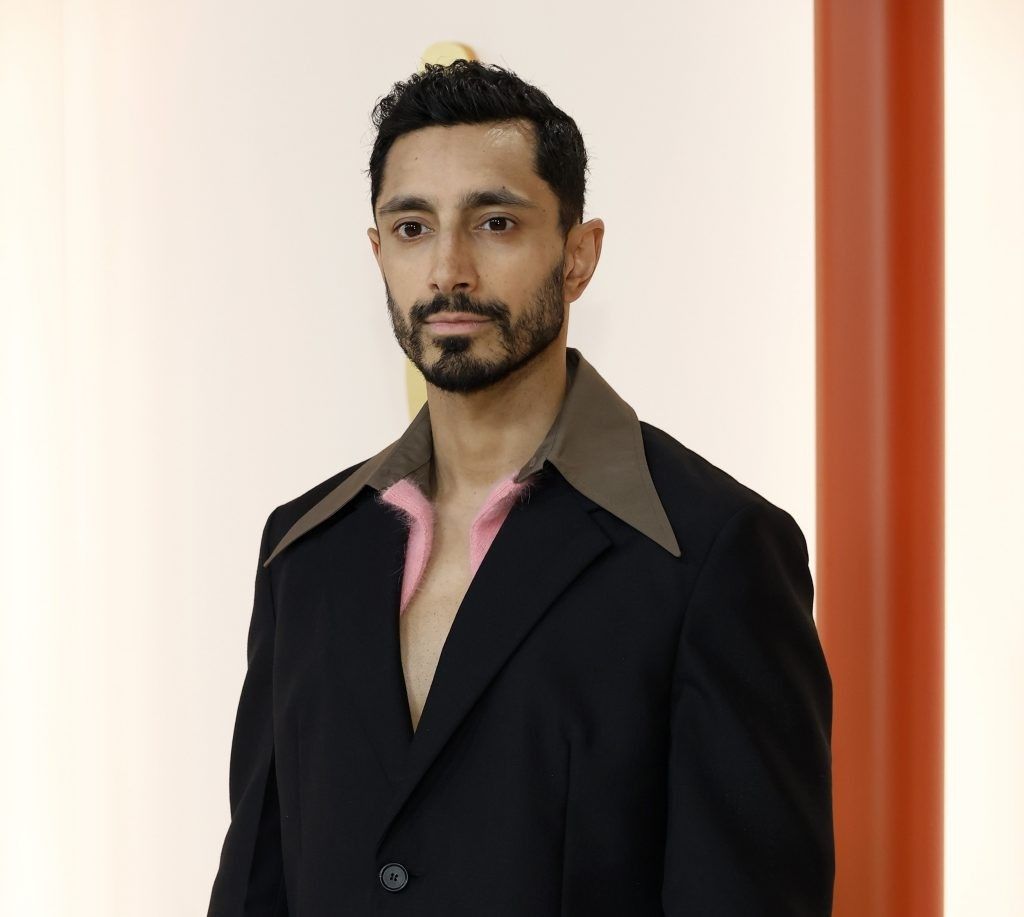
How does this work?
“It means that you’re sort of on a retainer, the agreement is we’ll part fund, and the deal is that you bring any idea you have to us first, so, you’re under our umbrella,” said Syal.
“It doesn’t mean you can’t go work with someone else, but we want first look, and that’s how it works reciprocally, because we think you’re so great.
“We would love to see anything you come up with.”
In 2021, the global consultants, McKinsey, concluded that, “By addressing the persistent racial inequities, the industry could reap an additional $10 billion in annual revenues—about seven per cent more than the assessed baseline of $148 billion.
“The handful of black creatives who are in prominent off-screen, ‘above the line’ positions (that is, creator, producer, writer, or director) find themselves primarily responsible for providing opportunities for other black off-screen talent.
Even so, two global household names shine through America’s acting profession – Oprah Winfrey and Shonda Rhimes.
And America appears to take more creative risks when it comes to actors and those of colour behind the scenes.
Disney+ took the chance of putting an American-Pakistani-Muslim teenager in the role of Ms Marvel, and behind the camera, some of the directors were from south Asia.
Asian investors
It could happen in the UK if south Asians invested in the creative arts, said Syal.
“We are the community that has more millionaires than any other ethnic group, why the hell are they not supporting creative endeavours?
“They can make a huge difference, and for them, it will be a tax [write-off].
“Seriously, they’re much more interested in seeing returns on their money and whatever they’re doing, they don’t see investing in the creative industries as a thing, when actually the creative industries in Britain are one of the most successful businesses.
“We bring billions into the economy every year, we are world renowned for our creative, technical expertise.
“But that really does take someone like Lenny Henry, for example, someone extraordinary, it takes someone like that to bring all the millionaires together.
“Why? There are all these stories that need telling, that can change the landscape.”
So, how does she feel about those who pit black and south Asian actors against one another?
“It’s the oldest game in the book, isn’t it?
“Divide and rule stops you seeing the bigger picture, which is that equality is not a pie, if I give you a piece that doesn’t mean it’s less pie.
“We all deserve a bit, the pie gets bigger, it should.”
Real moment
The star described her book, Anita and Me, being put on the school curriculum as a “real moment”.
“When I went to a bookshop, and you see those study guides for GCSE and A level, and I had to buy one.
“You open it, and there are pages on the West Midlands and the National Front, the rivers of blood speech and partition, which are all in the book and honestly made me cry.
“I just wanted us to be remembered, I didn’t want us to be a little footnote in history that our lives mattered.
“Our experiences mattered when we were so misunderstood and invisible.
“So, that moment for me was really huge, because it was like, ‘Oh, my God, there are kids now that are learning about partition that knew nothing about it, that are learning about the rivers of blood speech, that are beginning to understand why we are here.’
“The way that history is taught in this country, we need to change it.”
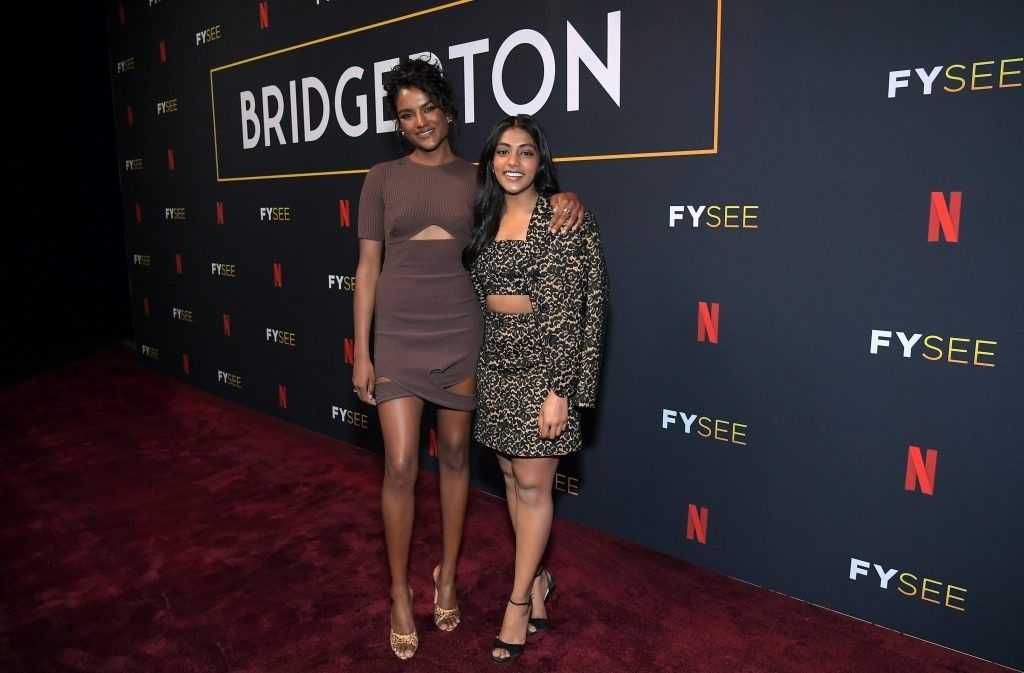
Throughout her career, Syal has never shied away from tackling controversial issues and unpalatable truths among south Asian communities.
Her screenplay, Bhaji on the Beach, explored domestic violence, for example, and south Asian men criticised her for highlighting the problem.
Syal’s memoirs are scheduled for 2025, but they will not be the usual linear timeline.
Instead, the actress wants to take quotes from what people have told her and “riff off them” letting her thoughts take us on a journey.
“It [parity] will happen eventually, I hope it happens in my lifetime, because it’s osmosis.
“You can’t keep so many good people down, and our creative pool is growing.
“There are now a couple of south Asian women in really interesting positions in development and film now, and they are opening those doors, and they are trying.”
Comment
The creative arts must nurture south Asian talent
The problem with acting is that most south Asians still don’t recognise it as a viable profession, writes Barnie Choudhury.
Ironically, our communities still feast on unprobable Bollywood tales, but eschew the ones closer to home.
As an immigrant, the idea that my generation would produce home-grown stars such as Meera Syal, Sanjeev Bhaskar, Kulvinder Ghir, Nina Wadia, Nitin Ginatra, to name but a few, is unbelievable.
Ours is the cohort who grew up in a Britain where racism and P*** bashing flourished and were ignored by the police.
Ours is the legacy of Enoch Powell’s “rivers of blood” speech, even though we were British citizens, invited by the government to do the menial tasks white folk flatly refused to do.
Ours is one where our parents kept suitcases above almirahs (wardrobes) for fear of being sent back to India, Pakistan, Bangladesh and Sri Lanka.
So, we were pointed towards becoming doctors, pharmacists, lawyers, dentists and pioneered the open-all-hours corner shops.
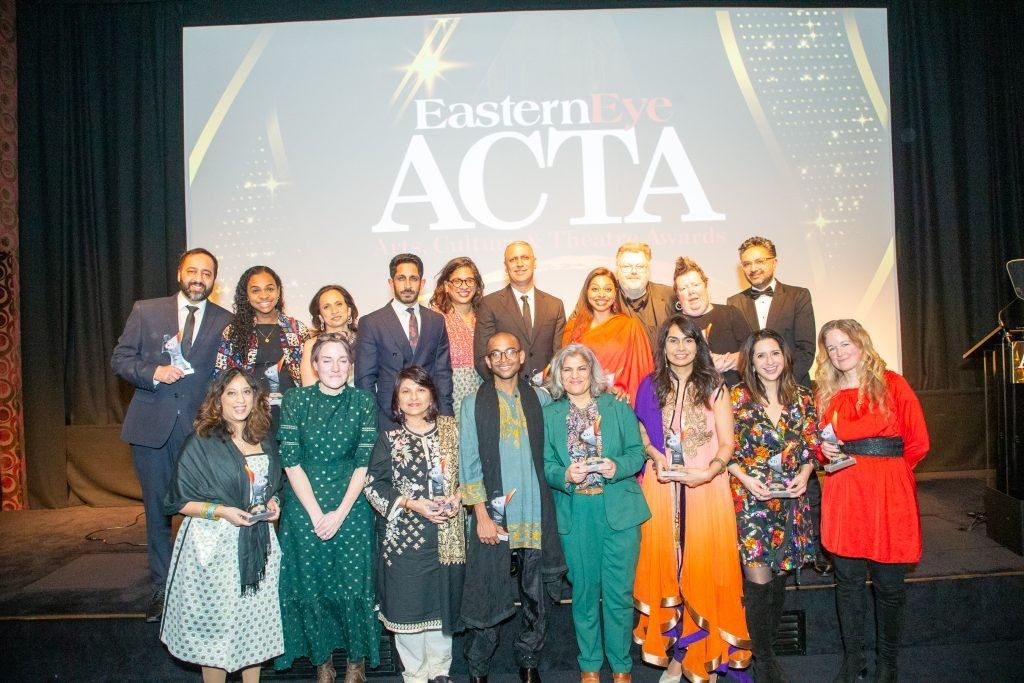
top talent among south Asians in the UK’s creative industries
We watched white people play us – Peter Sellers in The Millionairess, Indian-born Michael Bates in It Ain’t Half Hot Mum, Alec Guinness in A Passage to India, or Ian Richardson in Lord Mountbatten: The Last Viceroy.
We were the butt of racist jokes in Mind Your Language or Love Thy Neighbour.
Little wonder our parents forbade us to become thespians.
Disrespect
Today, we have more names and slowly we’re seeing more south Asians on screen and on stage.
But we forget that progress is glacially slow.
We forget that even after the success of Goodness Gracious Me, it was four years and many attempts later that the BBC commissioned The Kumars at No. 42.
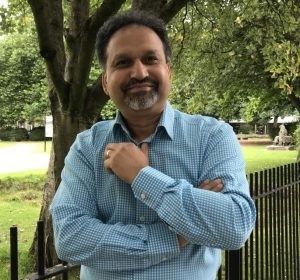
It is the idea age-old idea among white commissioners who need to be convinced time and again that we, south Asians, are funny and that majority white audiences will watch in their millions.
In a way they disrespect the intelligence of the people they are meant to serve.
Remember The Kumars would go on to win several prizes including the best new TV comedy in the British Comedy Awards in 2002, and the international Emmy Awards in 2003.
It raises the question – how can commissioners hold people of colour to a higher bar, making us jump more hurdles than the white Oxbridge elite whom they nurture and fête to success?
Even today when I go to the theatre in my home city of Coventry or my adopted Leicester home, where 43 per cent are south Asian, I can count on two hands people from our communities in the audience.
My wife and I went to see The Best Exotic Marigold Hotel at the Belgrade last month.
It had a top-notch cast, including my former BBC colleague, Rekha John-Cheriyan.
I was just so disappointed that they were watched by so few south Asians.
It is the same when I go to London’s West End.
Not welcome
We are not made to feel welcome, and there is minimal effort to tell stories which reflect our nation other than through a white lens.
And it’s worse on screen and behind the scenes.
My research suggests that we have one south Asian artistic directors of south Asian heritage running a mainstream theatre in the UK.
Even then, Nadia Fall, told The Independent that, “I did drama at school and loved it and I had secret longings about being an actor.
“My parents were disgusted by the thought of any of that, especially my father, who is the strict Asian father who wanted me to be academic and traditional and get married and have children.”
So, it should come as no surprise that in television and film, like most institutions, senior leadership – the level where decisions are taken, where they control budgets, and where they commission programmes and green-light projects – remains horrendously, hideously and woefully white.
Why is it important?
Because we south Asians, Africans, Caribbeans, and mixed-race communities have our stories to tell.
British-Asian stories
They are stories which may not chime with the tales of white, western folk.
They are stories which are seen and told through a non-white lens.
They are stories where history may be written by the losing side.
But they are important stories we are not allowed to tell or are being forced to tell through a white prism by those who cannot hope to understand their importance or significance.
The stories of how we shaped Britain. The stories of how we overcame prejudice. The stories of how we succeeded against all odds. The stories of how we formed friendships, kinship, and alliances with unnatural allies.
The stories of how the face of Britain today is changing, where we have a south Asian prime minister, written through the lens of people who cannot hope to understand its importance because they have not walked a stride in our shoes or breathed our atmosphere.
And when we complain, we are accused of being unpatriotic, and told to leave Britain, our home.
Worst of all, our authentic voice remains subjugated, silenced and strangled because we are not allowed in the room where they make real decisions.
Any why is it important that we have our voice?
As the Nigerian poet, Ben Okri said, “Storytellers ought not to be too tame. They ought to be wild creatures who function adequately in society. They are best in disguise. If they lose all their wildness, they cannot give us the truest joys. Stories can conquer fear, you know. They can make the heart bigger.”
